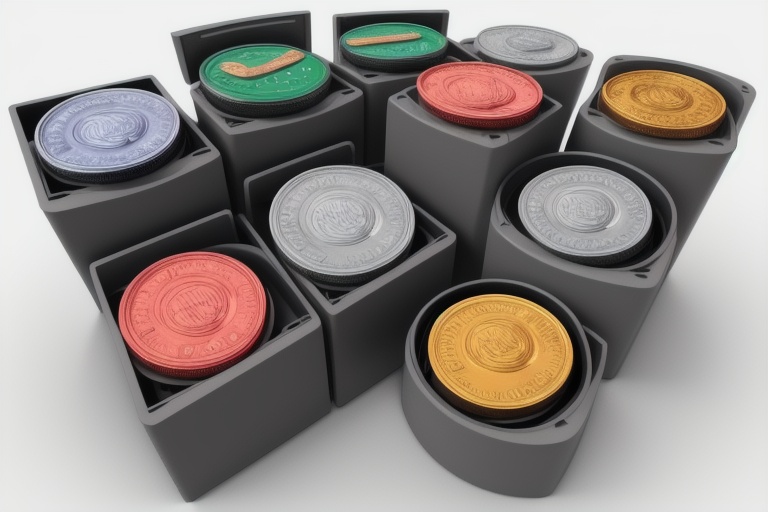The era of digital transactions has solidified its grip on the financial fabric of our society, especially accentuated by the COVID-19 pandemic, which has led to a decline in the circulation of physical currency. As a result, brick-and-mortar businesses that rely on cash transactions are facing the challenge of providing necessary change to customers. This shift has a disproportionately negative effect on lower-income households that remain dependent on cash for their day-to-day transactions. To facilitate these changes and address the coin circulation shortage that many are experiencing, let’s explore the range of options available to those with a hefty stash of coins looking to convert their metallic currency into spendable cash.
The era of digital transactions has solidified its grip on the financial fabric of our society, especially accentuated by the COVID-19 pandemic, which has led to a decline in the circulation of physical currency. As a result, brick-and-mortar businesses that rely on cash transactions are facing the challenge of providing necessary change to customers. This shift has a disproportionately negative effect on lower-income households that remain dependent on cash for their day-to-day transactions. To facilitate these changes and address the coin circulation shortage that many are experiencing, let’s explore the range of options available to those with a hefty stash of coins looking to convert their metallic currency into spendable cash.
Many people are unaware that community-minded financial institutions such as credit unions and local banks often provide coin exchange services without a fee. Such institutions prioritize customer service and community engagement, acknowledging that the ability to exchange coins for cash is a fundamental necessity for many. Moreover, larger banking establishments such as Wells Fargo have retained policies that cater to coin depositors, accepting rolled coins at no extra charge and even supplying the necessary wrappers at no cost. Nevertheless, bank policies vary, and I encourage customers to inquire about their bank's specific protocol before making a trip to convert their coins.
Alternative Coin Exchange Options
Despite the disappearance of coin-counting machines from numerous major banking franchises including Bank of America, Chase, and Capital One, resourceful service providers have emerged. Hyperion Bank in Philadelphia, for example, offers free coin-counting for its account holders, while extending the service to non-account holders for a small fee. This is just one example of the broader opportunities available to transform your change into usable currency.
Family Fun with Coin Collecting
Capitalizing on the coin exchange process can also be a fantastic teaching moment for younger generations. As some parents have discovered, involving children in coin counting and depositing the resultant funds into their own savings accounts fosters financial literacy and saving habits. What's more, it provides an exciting, tangible way for kids to view their money growing. Other families have gamified the experience, making coin rolling a competitive activity that can culminate in a small reward – turning a chore into an enjoyable event.
Using Coin-Counting Services
If exchanging coins at a financial institution doesn't appeal to you, or if you simply prefer an alternative, numerous grocery stores and retail outlets have filled this niche with coin-counting kiosks. While these kiosks are a modern convenience, it’s important to note that services such as Coinstar typically deduct a fee from the total amount converted. Nevertheless, for those prioritizing convenience or looking for an immediate cash exchange, these machines fill an important role in the coin conversion landscape.
Making the Choice
When it comes to turning your coin collections into cash, there are considerations such as convenience, fees, and the amount of assistance provided. Credit unions and local banks are often the go-to for a feeless exchange. Larger banks can offer similar services with minimal conditions, and coin-counting machines at specific locations remain a viable, albeit slightly more costly, alternative.
Exchanging coins for cash is a straightforward process, and individuals should choose the option that aligns most closely with their preferences and convenience. Whether you opt for the personal touch of a community bank or the automation of a grocery store kiosk, the goal remains the same: to transition from the weight of coins to the flexibility of cash. This process not only serves a practical need but also represents the physical transformation of saved change into a usable asset. Open up that piggy bank, sort through your jars of coins, and take advantage of the services available to help you reap the value of your savings.
Information for this article was gathered from the following source.




